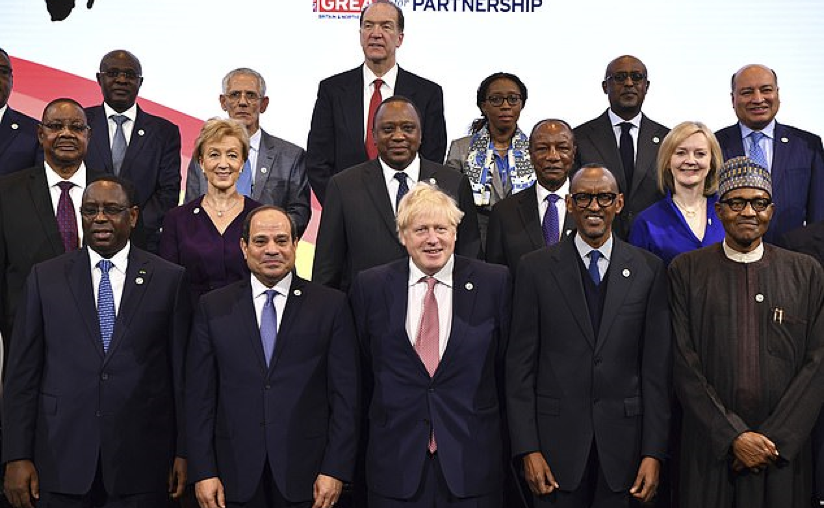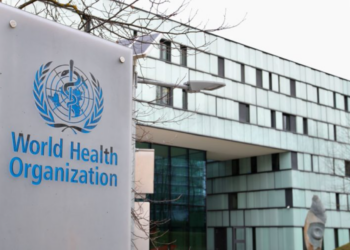More than 130 countries have signed up to a groundbreaking global deal on corporate tax reform, which would see corporations pay a tax rate of at least 15% to the countries where they earn. This is aimed at eliminating tax havens while bringing in additional $150 billion a year from multinationals.
Despite the reception from other countries of the world, Nigeria, Kenya, Sri Lanka, and Pakistan have held out of this agreement. Recall, in July Nairametrics reported that Nigeria abstained from signing the global tax deal.
Meanwhile, the 136 nations also agreed to a two-year ban on imposing new taxes on tech groups such as Google and Amazon while the Joe Biden administration tries to ratify the deal in the US.
This represents the biggest corporate tax reform for more than a century orchestrated by the Organisation for Economic Co-operation and Development (OECD), which includes a 15% global minimum effective corporate tax rate, plus new rules to force the world’s multinationals to declare profits and pay more in the countries where they do business.
According to information emanating from the deal, the number of nations prepared to sign up fluctuated on Friday, with India only agreeing at the last moment, while China and Brazil were also reluctant signatories. Meanwhile, only Sri Lanka, Pakistan, Nigeria and Kenya held out on the deals.
The difficulties in implementing the deal became apparent when Janet Yellen, US Treasury secretary, urged Congress to “swiftly” enact the proposals by using the so-called reconciliation process, which allows bills to pass the Senate with a simple majority. She said the agreement was a “once-in-a-generation accomplishment for economic diplomacy.”
She said, “As of this morning, virtually the entire global economy has decided to end the race to the bottom on corporate taxation. Rather than competing on our ability to offer low corporate rates, America will now compete on the skills of our workers and our capacity to innovate, which is a race we can win.”
The stakes remain high for the US and countries such as India that have levied digital services taxes on Silicon Valley tech groups. If Congress fails to implement the deal, those countries may go ahead with their digital taxes, sparking trade disputes with the US.
However, the deal gives the US space to ratify the agreement, specifying that “no newly enacted digital services taxes or other relevant similar measures will be imposed on any company from 8 October 2021” for two years.
Why Nigeria rejected it
Developing countries have complained about the lack of revenue they stand to make from the deal on fairer distribution of profits and taxing rights. They point out that this is worsened by the removal of digital service taxes, which was a deal-breaker for Nigeria and Kenya despite OECD estimates showing they would gain.
This is quite significant considering the recent move by the federal government to ensure that social media firms like Twitter begin to remit taxes to Nigeria.
What you should know about the deal
According to the statement from the OECD the framework is divided into two pillars. Pillar one is expected to ensure a fairer distribution of profits and taxing rights among countries.
Notably, pillar one would re-allocate some taxing rights over multinationals from their home countries to the markets where they have business activities and earn profits, regardless of whether firms have a physical presence there.
Under Pillar One, taxing rights on more than USD 100 billion of profit are expected to be reallocated to market jurisdictions each year.
The second pillar seeks to put a floor on competition over corporate income tax, by introducing a global minimum corporate tax rate that countries can use to protect their tax bases. They also capped the minimum corporate income tax rate at 15% under its pillar two.

















This peope are crazy, why can’t Nigerians launch startups in the US without registering their businesses in Delaware.
This white guys think we are fools.
All to protect the wealth of the cooperation in the US, God help us
Nigeria and the Global Minimum Corporate Tax
Early last month, finance ministers from the Group of Seven (G-7) nations reached a “momentous” agreement in the United Kingdom, committing to implement a global minimum corporate tax of at least 15%.
Speaking after the deal was signed in London, British Chancellor of the Exchequer said the G-7 nations had agreed to make the global tax system “fit for the global digital age and more importantly, to make sure that it’s fair so that the right companies pay the right tax in the right places”.
The agreement is aimed at ending a so-called “race to the bottom” on global tax rates, whereby tax havens and low-tax jurisdictions stand accused of inducing governments to increasingly lower their taxes, a scenario that disturbs the level playing field, thus, affecting government’s ability to finance what economists refer to as public goods.
Despite the agreement being reached in the United Kingdom last month, it could be “years” before the new rules are fully implemented, and even then, they are likely to face challenges as companies, especially, the big techs, may ask their lawyers to find loopholes and “creative solutions. This is likely to negatively affect emerging and developing countries.
Yet, as the minimum corporate tax rate appears to be moving ahead, it’s worth considering whether such a move can be effective in the battle to ensure a fair global environment when it comes to paying corporate taxes.
Corporate tax rates have indeed come down in many countries, but corporate tax revenue as a share of GDP has mostly not, as countries have broadened their tax base. Other mechanisms like international information exchange have also been implemented to thwart tax evasion. In addition, corporate taxes are only part of the tax that company owners pay.
Unlimited tax competition and very low tax rates are not helpful for political and societal support of the social market economy. While low tax rates may be justifiable, it is difficult to explain to tax-paying workers and the public why there are predatory zero taxes or near-zero taxes on corporate profits.
As a result, establishing a minimum corporate tax rate would be effective in countering the argument that market economies are governed by greed and inherently self-destabilising.
However, some economists argue that the 15% rate is too high and would adversely impact small and often emerging or developing countries. There is also a suspicion that another motive behind the move is to establish a form of “taxation cartel” to prevent the loss of investment to more competitive, low-tax jurisdictions.
It’s also worth considering what impact a global minimum corporate tax rate would have on a country like Nigeria, that is defined by high level of socioeconomic and political uncertainties, a reputation that affects her ability to attract investments in spite her strategic location and market potential.
I believe Nigeria is likely to be too heavily affected by such a move because it already has many disadvantages working against her. These disadvantages include high level of insecurity, poor state of physical infrastructure, etc. As such, the country may not be able to attract companies that want to leave tax havens.
The minimum corporate tax rate is also likely to be accompanied by an agreement on shifting part of the tax base of very profitable, international corporations to the consumer country, depending on the details of the agreement, this might affect Nigeria positively (revenue from big tech companies) or negatively (revenue loss from companies taxed partially abroad). On the whole, the net effect is not likely to be huge.
Equally, the minimum corporate tax rate is also likely to impact Nigeria, which is today a “low tax and low quality of life” destination which is challenge in attracting highly-qualified labour.
More importantly, Nigeria must underpin her all her reforms programs and policies around how to reposition herself to be able to implement the agreement. The country has need to put in place strong (other) framework conditions that is required to project her as a reliable international partner or destination to do business with (or in).
In essence, despite our relatively poor position in the ease of doing business and global competitiveness ranking, Nigerian policymakers must strive to maintain good framework conditions that would enable her project her huge market potential as an investment destination.
Maintaining strong framework conditions includes ensuring lean regulation, strong infrastructure and education, and high-quality services, which are today considered the country’s weak points.
Keeping the orientation on strategic innovative sectors could be underpinned, for example by support to research and development, exploiting further the country’s role as a regional (economic and political) power and as an interface between the East and West African nations, building further on its reputation as a culturally open, diverse and resilient country. Hence, the need to urgently rebrand the image/reputation of the country as one where companies do not have to fear political and regulatory risks or any damage to their own reputation as a result of doing business here.